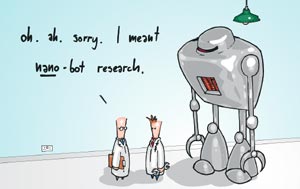
Effective mentoring of graduate and undergraduate students in scientific fields play a key role in their professional success but more needs to be done to make sure it is better recognized and rewarded within US higher education. That is according to a report by National Academies of Sciences, Engineering and Medicine, which set out a series of actions that colleges and universities can take to strengthen their mentoring systems in science, technology, engineering, mathematics and medicine (STEMM) subjects.
The report – The Science of Effective Mentorship in STEMM – points out that well-designed mentoring has a positive influence on academic achievement and career success and satisfaction. However, the report states, most academic institutions have left the process to happen organically or on an ad hoc basis. Furthermore, studies indicate that STEMM students from underrepresented minorities typically receive less mentorship than other students.
There is an opportunity to provide mentors with training in good mentoring practices and that provide mentees with access to a network of mentors
Keivan Stassun
The report emphasizes that while every mentorship is unique, there are certain core behaviours by mentors and their subjects that are “more likely to yield effective mentoring relationships”. These include aligning expectations, building rapport and maintaining open communication. “Mentorship is a learned skill,” the report states, with programmes to foster mentorship skills having been shown “to help mentors and mentees advance their skills in multiple areas”.
Angela Byars-Winston from the University of Madison, Wisconsin, who chaired the 12-strong committee that wrote the report, says there is a gap between what we know about effective mentoring and how it is practiced in the US’s colleges and universities. “A growing body of evidence exists about how to sustain successful, inclusive mentoring relationships,” she says. “Our goal in this work was to bring together the multiple disciplinary ways that mentorship has been studied and investigated across many forms and across many disciplines – and to provide guidance for effective mentoring tools and resources on how to make relationships better.”
Regular assessments
The report provides nine recommendations that institutions and individual scientists should use to “build a culture of inclusive, effective mentorship”. The process starts with the adoption of a definition of STEMM mentorship as “a professional working alliance in which individuals work together over time to support the personal and professional growth, development, and success of the relational partners through the provision of career and psychosocial support”.
The report also recommends that institutions and departments adopt “evidence-based mentoring approaches” and establish structured feedback systems to improve the process at all levels. According to astrophysicist Keivan Stassun from Vanderbilt University, who sat on the committee, that recommendation has a particular resonance for physics. “Physics and astronomy have a strong tradition in the master/apprentice mode,” he says. “But this model traditionally involves a more one-sided approach than what we envision in the report.” Lessons from graduate school
The report states that institutions should create systems that allow young scientists to receive support from more than one mentor, both inside and outside their department. Stassun notes the importance of this for “big science” projects in physics and astronomy. “Within large groups, it is reasonable to expect that it is easier for students to fall through the cracks, but there is an opportunity to provide mentors with training in good mentoring practices and that provide mentees with access to a network of mentors,” he says. “Mentees get more of their mentoring needs met, and each mentor can be clear about what types of mentoring they are, and are not, willing to provide.”
The report also asserts that individual mentors should recognize cultural diversity in their students. Specifically, it states, “they should learn about and make use of inclusive approaches…listening actively, working toward cultural responsiveness, and moving beyond ‘colour-blindness’”. Additionally, the report calls on programme leaders and department chairs to regularly assess the results of mentorship to identify and mitigate “negative experiences”. It concludes that institutions “should reward and visibly recognize mentors for documented, effective, and inclusive mentorship in the same manner as effective teaching is recognized, including through annual rewards”.



